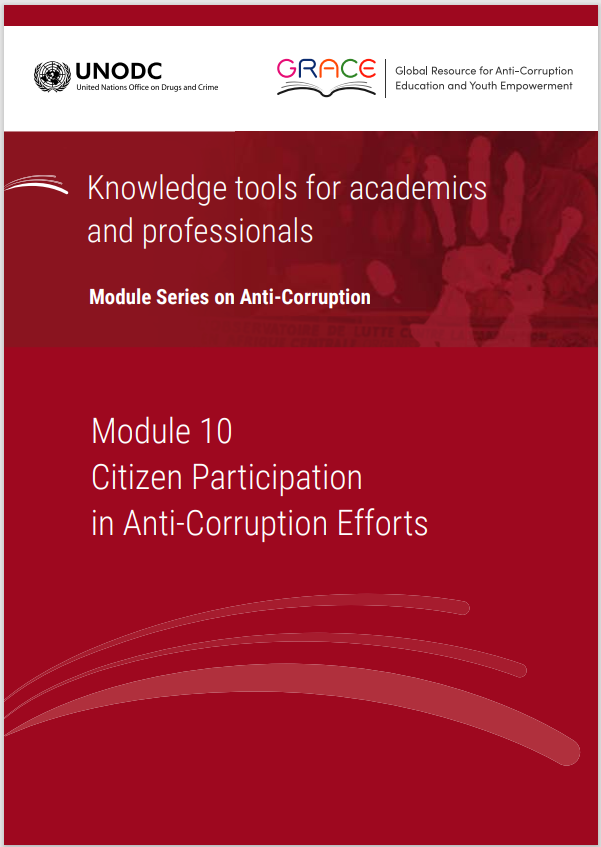This module is a resource for lecturers
Possible class structure
This section contains recommendations for a teaching sequence and timing intended to achieve learning outcomes through a three-hour class. The lecturer may wish to disregard or shorten some of the segments below in order to give more time to other elements, including introduction, icebreakers, conclusion or short breaks. The structure could also be adapted for shorter or longer classes, given that class durations vary across countries.
Introduction (10 minutes)
- The class should start with questions to get students to think about their prior understanding of citizen participation and about citizen participation as a personal responsibility. Some questions that can be asked are:
- What do you understand by citizen participation?
- What does it mean to be a citizen in your country? Is citizenship defined by rights, duties, or a combination of the two?
- Have you ever done anything which you feel contributed to the fight against corruption on any scale? It does not matter how small.
- Do you think you have a responsibility to fight corruption? Why?
- At the end of the brainstorming, the ideas should be put on a board and the top five ideas selected, and a brief discussion on students' choices should follow.
Overview: How can citizens participate in fighting corruption? (45 minutes)
- Screen Fighting Corruption in the Developing World.
- Conduct Exercise 1.
- Present the main manifestations of corruption in education.
The role of the media and social media: How investigative journalism can fight corruption (25 minutes)
- Have students watch in advance of the class the video Panama Papers or the video How I named, shamed and jailed (pre-class).
- Conduct Exercise 2.
Citizen journalism (40 minutes)
- Screen Citizen journalism.
- Conduct Exercise 3.
- The students should then discuss the following issues:
- What are the ethical issues around citizen journalism?
- How has citizen journalism affected mainstream journalism?
- How can citizen journalism be used in the fight against corruption?
Game changes & the impact of civil society (45 minutes)
- Conduct Exercise 4 or 5 by following the guidelines in the Exercises section (if time allows, do both).
Using technology in the fight against corruption (15 minutes)
- Students must have done the required reading for this exercise before class.
- Conduct Exercise 6.
 Next:
Core reading
Next:
Core reading
 Back to top
Back to top
